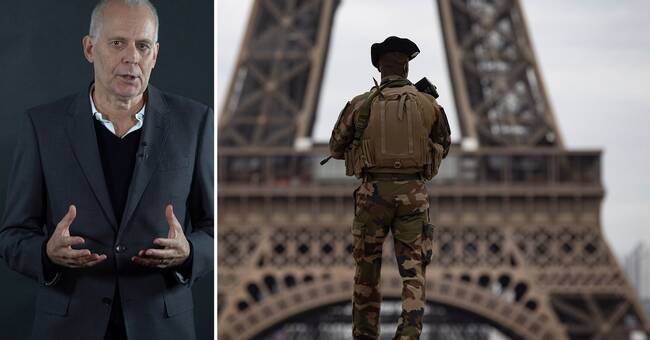A protracted trial started in early September, suspended for weeks due to the defendants' Covidine illness, will come to an end today.
It is a symbolically important trial for the prosecution.
They want to prove that there are no "lone wolves" in jihadist terror.
And so they want some to be held accountable for the bestial acts that created such strong reactions in France when they took place five years ago.
It is not the perpetrators who are to be convicted.
They are dead.
Those who want to be convicted are those who are suspected of having contributed to the attacks through their involvement in them.
If one succeeds with that intent, it is less certain.
Fourteen accused
The investigation behind the legal process that ends today has been going on for five years.
It has been so long since the attacks on the satirical magazine Charlie Hebdo in January 2015, when twelve people were killed outside and inside the editorial office in Paris, and the attacks that followed a few days later when a police officer and four customers in a Jewish grocery store were killed by a another perpetrator.
In the process that has now taken place, fourteen people have been charged.
They are considered to have contributed weapons, financing and other logistics and support, for example to house the assassins.
The criminal classifications are cooperation with terrorists and aiding and abetting terrorist murders.
The sentences demanded by the prosecutor range from a year's imprisonment to life imprisonment.
Lonely wolves
In connection with the first terrorist attack of this kind in France, the one against a number of military and a Jewish school in Toulouse in 2012, much revolved around the issue of so-called "lone wolves".
Initially, the perpetrator was portrayed as a "lonely lunatic" who was radicalized overnight.
But it soon became apparent that he had moved in circles where radical Islamism was preached, in France as well as in the Middle East where he had gone on a couple of trips.
Since then, the French security services and the special terrorist prosecutors have put a lot of effort into investigating the contexts in which the perpetrators moved - vacuuming their phones, following their movements and investigating their contacts in former IS-dominated areas from which it was believed that the attacks were frequent. ordered and planned.
Complicated evidentiary situation
In the case of the January attacks, it is difficult to pinpoint clients behind those attacks.
What one has are fingerprints on murder weapons, extensive telephone contacts with people who were in the vicinity of the assassins, helped them with money and housing before they carried out their deeds.
But is the evidence enough?
Those who followed the trials have not always been convinced.
The trial is filmed in its entirety, something that is otherwise not usual.
Not to present to the public, but to preserve in the archives of the French legal system, as a historical document.
And not least for the prosecution, which has invested enormous investigative resources, the outcome is crucial today.
Is it possible to hold someone accountable for terrorism, even though the perpetrators are dead?

